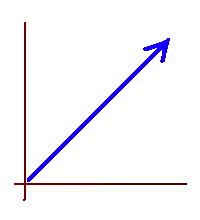Everyone learns in his or her own individual way
Some students like to go fast. They quickly pick up a new problem-solving method as soon as they see that it works. They take note of the new method and they are ready to move on to the next problem. Some other students want to stop and ask several questions and examine the new method from different angles before giving any credibility to it. They are not satisfied with one or two examples or with only one type of explanation. They ask questions like: "What if x was negative instead of positive?" "What if the root is a cube root instead of a square root?" "Is it always going to work like that?" "How do I know when I have to use that formula?", and many other similar questions.
Each approach has advantages and disadvantages. In an exam, people who like solving problems fast are more at risk of making simple mistakes in the details of the calculations but they have a better chance to work with all the problems. People who like to pay attention to detail and to carefully think things through are more at risk of running out of time and having to guess in a hurry several problems at the end of the test but they tend to have a higher ratio of correct answers in the problems they solved first.
Memorizing chemical element symbols
-
Here’s something I’ve wondered about before: are there good mnemonics for
chemical element symbols? Some element symbols are based on Latin or German
nam...
9 hours ago





No comments:
Post a Comment